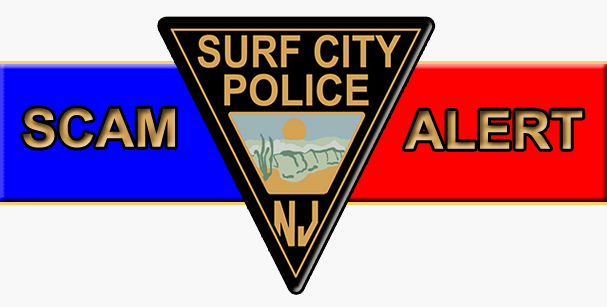
How to Spot a Scam
Scammers are constantly reinventing new ways to perpetrate old ploys. Whether you’re contacted by phone, mail, email, text, or in-person, the following tips provide advice on how to spot a scam.
Look For These Tell-Tale Red Flags...
You are contacted out of the blue.
Scam artists aim fake invoices, phony debt collection notices, and spam emails at unsuspecting consumers hoping they will pay before checking their records. You should never send money or provide personal information to unknown or unfamiliar people or entities.
You are required to send money upfront in order to receive a prize.
Legitimate companies never require someone to pay money upfront in order to receive a prize.
You are asked to send money via a wire transfer or “reloadpack.”
Scam artists often instruct consumers to send money by wire transfer or re-loadable money packs. Sending money in these forms is the same as sending cash, it is nearly untraceable, and once the money is sent, it is generally gone for good.
You are asked to provide personal or financial information.
Banks, government agencies, and legitimate companies only ask consumers to provide personal information in rare circumstances and don’t do so by phone, email or text message. Scam artists impersonate these types of entities and use deceptive messages to lure consumers into providing their private information so that they can use it to commit fraud. Never provide your private information in response to an unsolicited call, email, or text message. Instead, call the entity at the number listed on its website or on the back of your card.
You are asked to keep it a secret.
Scam artists may ask consumers not to tell anyone about the situation so that the consumer doesn’t get advice from someone who might detect the scam. If you are asked to keep a transaction a secret, you should do the opposite—immediately contact trusted family members or friends to investigate the situation and get their opinion.
You are asked to act quickly.
Scam artists may say that there is a limited time to act in order to get people to pay money before they have time to think the situation through.
You receive payment in the form of a cashier’s check or money order.
Scam artists can create counterfeit checks and money orders that look remarkably authentic. After your financial institution cashes a check or money order, it generally has up to two weeks to reverse the transaction. If the check or money order ultimately ends up being counterfeit, your financial institution will probably hold you responsible for any portion of the funds that were used or sent back to the scam artist.
It sounds too good to be true.
If something sounds too good to be true, it probably is.
If you notice any of these red flags during a transaction, it’s a strong indication that you’re being targeted by a scam. In these situations, remember the following tips:
§ Don’t be afraid to say “no.” If something doesn’t seem right, tell the person you’re not interested. Don’t be afraid to hang up the phone, or to not respond to future calls, text messages or emails from the person. Hanging up isn’t bad manners if you think you’re being scammed.
§ Ask a friend, family member, or neighbor for their opinion. Scam artists don’t have your best interests in mind. Asking a trusted friend, family member or neighbor about the situation may help you spot the scam and save you from being victimized.
§ Don’t be rushed. If you are pressured to act quickly, take time to think things through. If an offer is good today, it will usually be available tomorrow.
§ When in doubt, don’t give it out. If you question who is contacting you, don’t give them any private information. Scam artists can use personal and financial information to steal your identity, drain your bank accounts, and open lines of credit in your name. If in doubt, don’t give your information out.
§ Research the offer. A simple Internet search can sometimes yield a lot of information, including consumer reviews, complaints, and other postings.